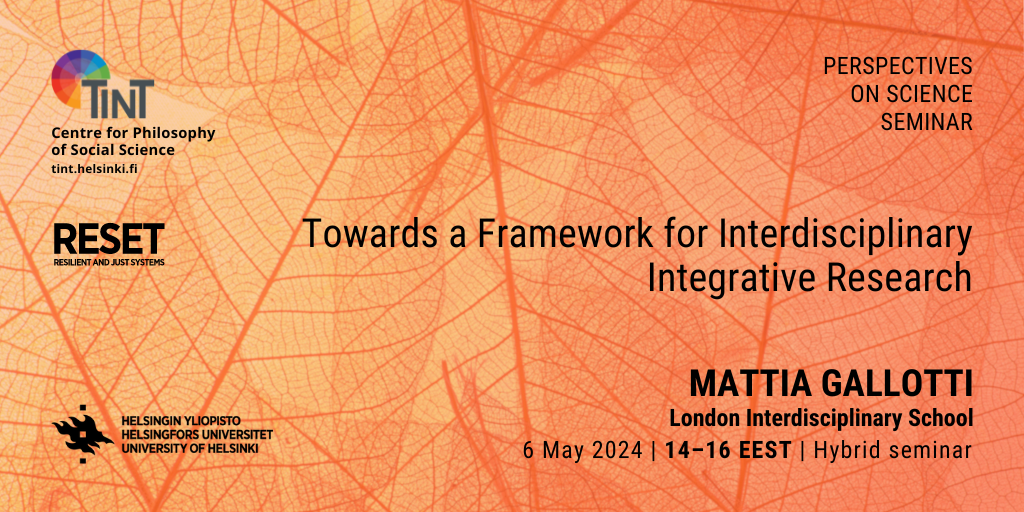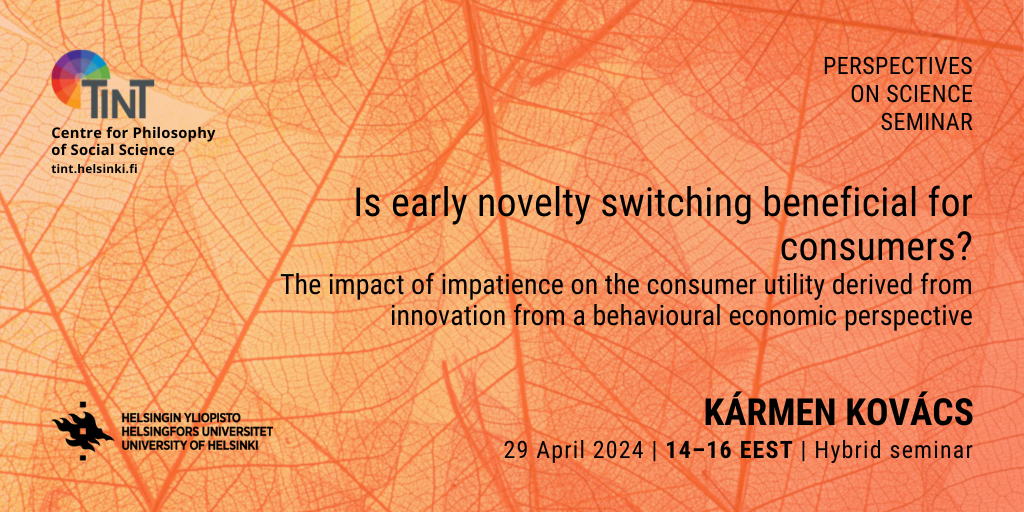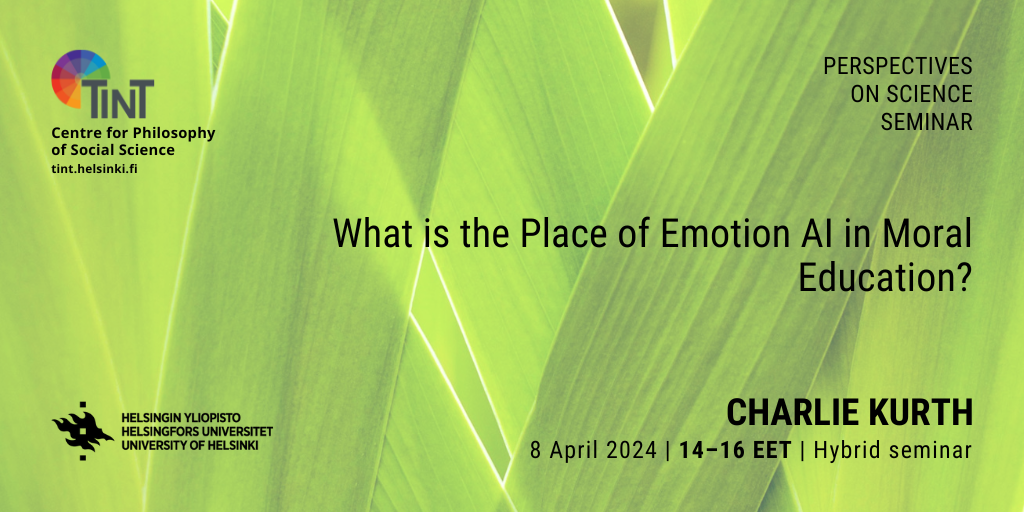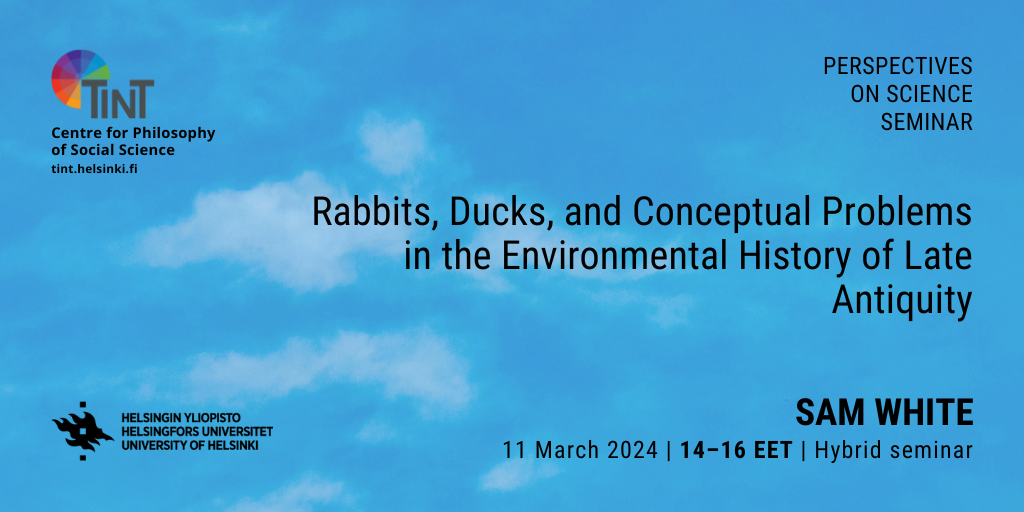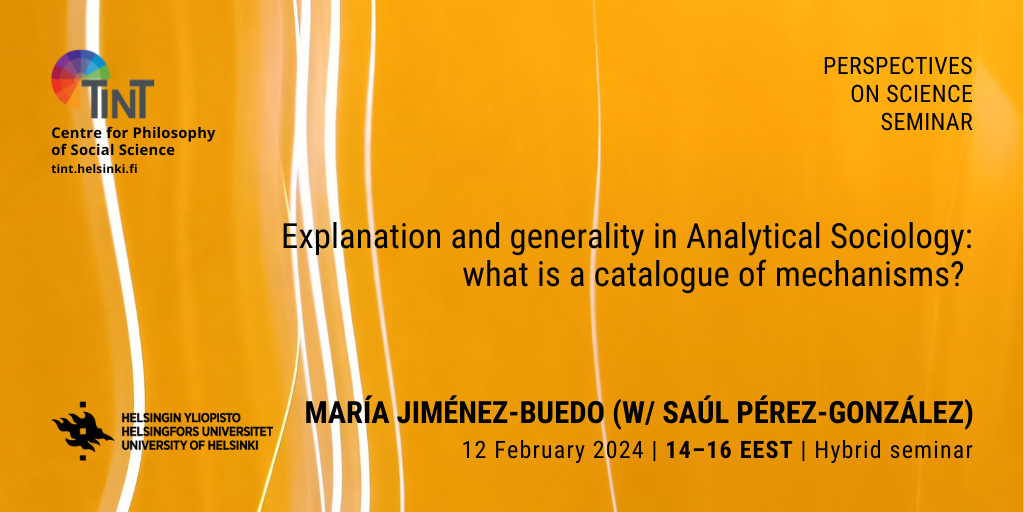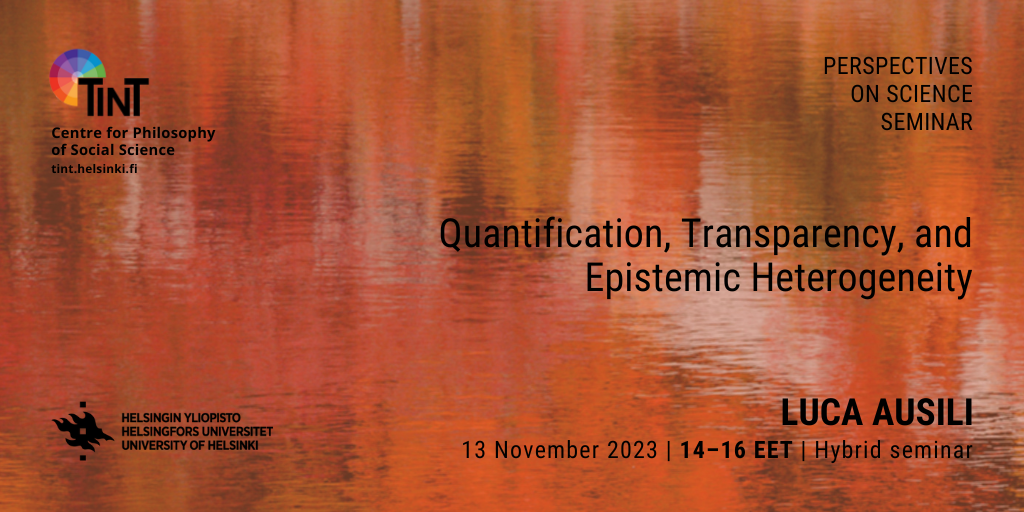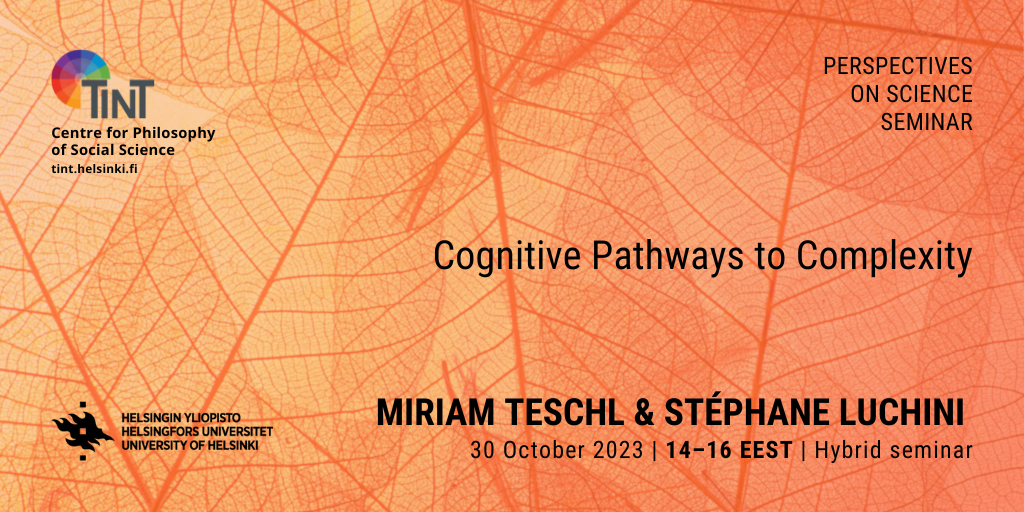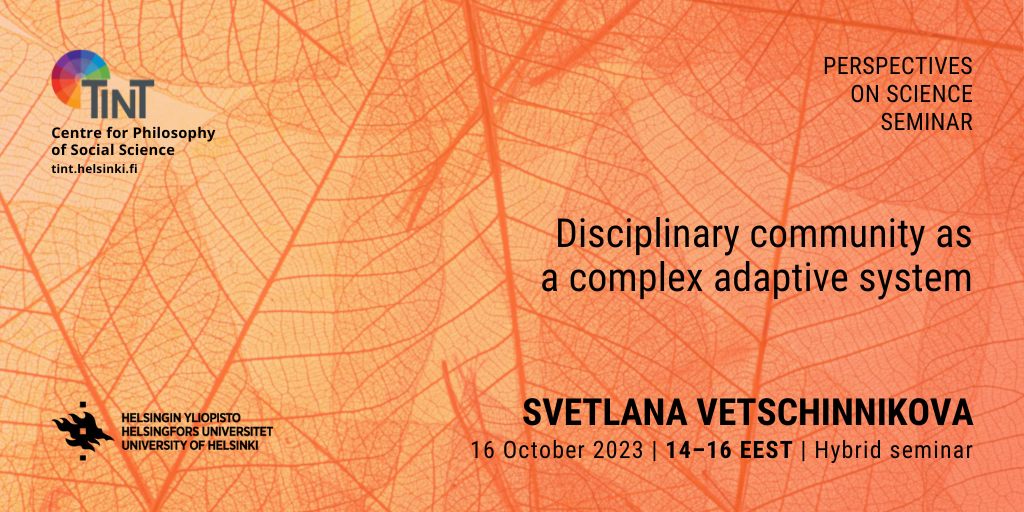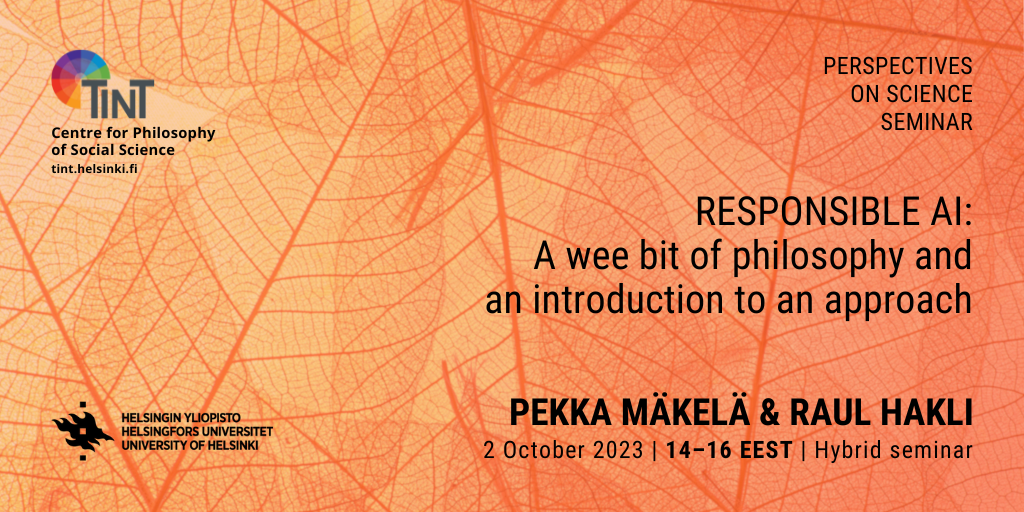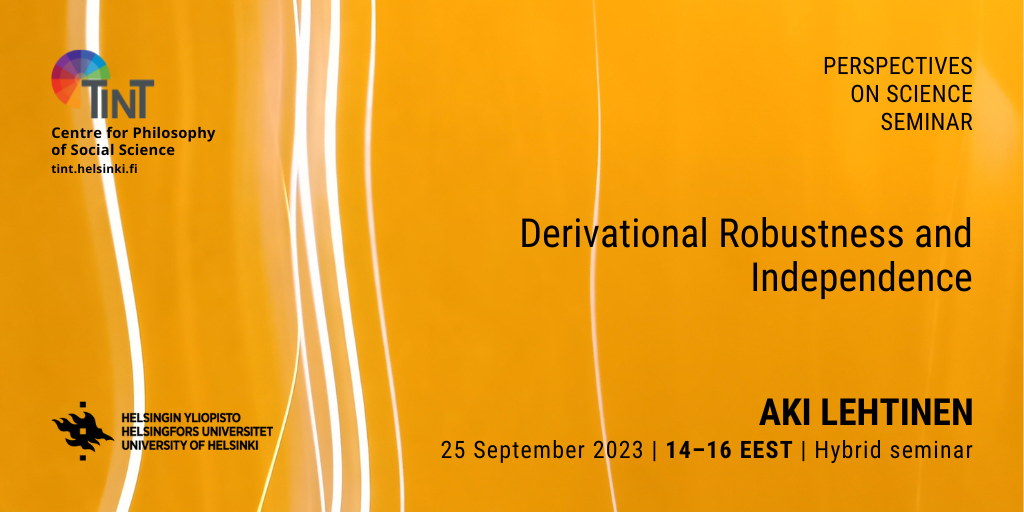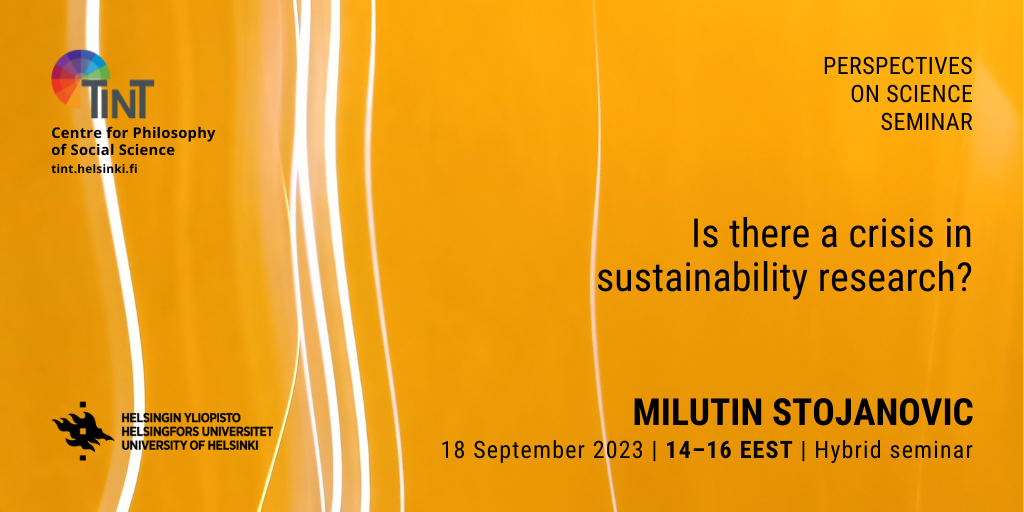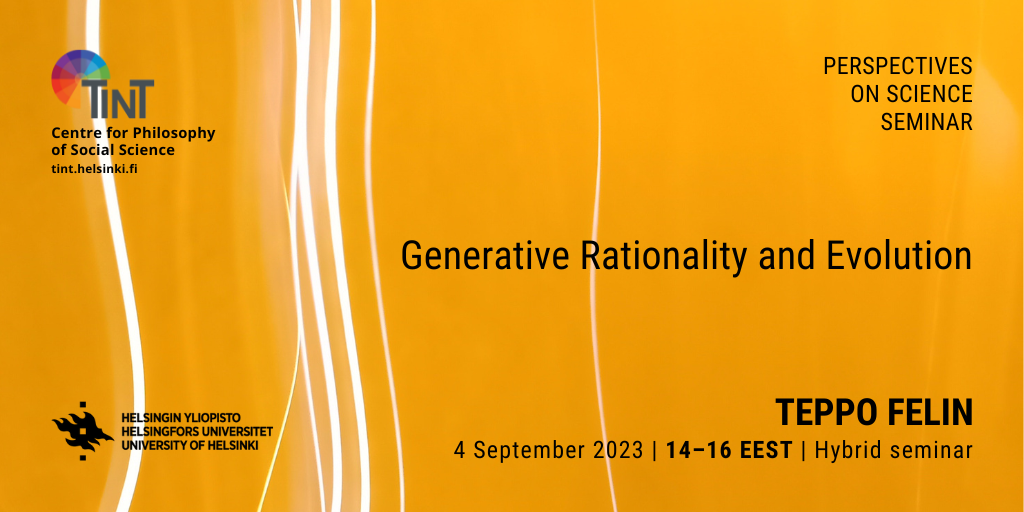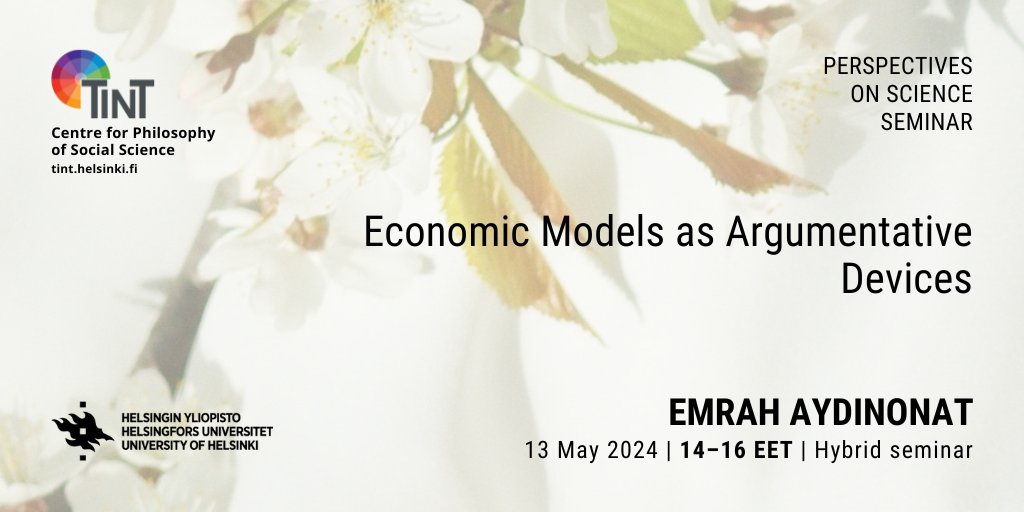
In the Perspectives on Science seminar on 13 May, 2024, N. Emrah Aydinonat (University of Helsinki) will give a talk titled “Economic Models as Argumentative Devices”
Perspectives on Science is a research seminar which brings together experts from the philosophy of science and several fields of science studies. It is organized by TINT – Centre for Philosophy of Social Science at the University of Helsinki. More information about the seminar can be found on the TINT web page https://tint.helsinki.fi.
The seminar takes place in person at Metsätalo room 10 and online via Zoom from 14:15 to 15:45 on Monday the 13th of May 2024. To join the seminar, please contact samuli.reijula@helsinki.fi for the location or Zoom invitation.
Abstract
In this talk I critically evaluate Itzhak Gilboa, Andrew Postlewaite, Larry Samuelson, and David Schmeidler’s account of economic models. First, I give a selective overview of their argument, highlighting its emphasis on similarity and their oversight of the role of idealizations in economics. Second, I propose a sketch of an account that views models as arguments and argumentative devices. This approach not only sheds light on Gilboa et al.’s approach, including its shortcomings, but also identifies key challenges in model-based inference, suggesting a fresh perspective on the uses of models in economics for diverse objectives.
Author Bio:
N. Emrah Aydinonat (PhD, Docent) is a philosopher of economics working at the University of Helsinki, and a member of the Centre for Philosophy of Social Science (TINT). He is one of the Chief Editors of the Journal of Economic Methodology, and a member of the Editorial Board of the History of Economic Ideas. He also serves in the International Advisory Board of The Review of Evolutionary Political Economy (REPE). More info: https://neaydinonat.com/

